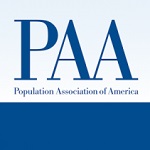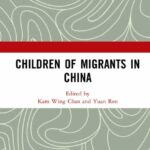Christine Leibbrand joins CSDE as Research Scientist and Training Program Director
|
CSDE is happy to announce that Dr. Christine Leibbrand has joined its Science Core as a Research Scientist responsible for research consultations requiring statistical and social demography expertise. Leibbrand received a PhD in Sociology from the University of Washington in 2019 and served as an Acting Assistant Professor of Sociology during the 2019-2020 academic year. Leibbrand was also a CSDE Trainee and Fellow from 2014-2019. Her research focuses on residential mobility and internal migration within the U.S., racial/ethnic stratification, segregation, and the consequences of local gun violence for community members. Currently, Leibbrand provides research consultation to students and faculty, collaborates on interdisciplinary research projects including with researchers at the Firearm Injury & Policy Research Program. As an alum of CSDE’s Training Program, Leibbrand brings lots of experience and ideas as the new Training Program Director. Leibbrand will continue to organize CSDE’s workshop series, teach several of CSDE’s Proseminar courses, collaborate on the program planning for CSDE’s seminar, and advise CSDE’s trainees.
(read more)
|
 |
CSDE Welcomes New Staff Members to the Administrative Core
|
CSDE is thrilled to announce that three new staff members have joined CSDE’s Administrative Core in the last several months. Gianna Cannataro is CSDE’s new Program Coordinator, Belinda Sachs is CSDE’s new Grants Manager in collaboration with the College of Built Environment’s Office of Research, and Angie Thai is CSDE’s new Budget Analyst Lead.
(read more)
|
 |
Raftery Joins Panel to Discuss COVID Data for Decision Makers
|
On Thursday August 6, a panel of behavioral and social scientists, including CSDE Affiliate Adrian Raftery, will present on how data about COVID 19 might be used to make program and policy decisions. The webinar is organized by the Societal Experts Action Network of the National Academies of Sciences, Engineering and Medicine. The webinar will answer the question – how can decision makers evaluate measurements and use COVID-19 data to understand the spread of the disease in their communities?
(read more)
|
 |
First PAA Applied Demography Conference!
|
PAA announces Applied Demography Conference, which will be hosted in conjunction with the Committee on Applied Demography. During these challenging times, the work of applied demographers is more important than ever! PAA is providing this tremendous opportunity to more effectively engage our applied demography community. The first Applied Demography Conference will take place virtually February 2-4, 2021. If you are interested in serving on the Program Committee, please fill out this form by August 5.
(read more)
|
 |
Join #PAA2020 Webinar Series: Data Collection during the Pandemic
On August 18 @11:30am (EST), PAA will hosts its fourth webinar in its ongoing PAA2020 programming. This webinar will focus on COVID-19 data collection challenges in countries of the Global South. Absence of sampling frame, poor quality of telephone and internet connectivity and absence of civil registration systems has led to a reliance on household surveys as the primary mode for obtaining demographic data. The spreading pandemic has blocked this avenue for gathering data precisely at a time when data are most needed. Researchers have responded by undertaking telephone surveys, video interviews and drawing samples via Facebook. This panel brings together researchers working in diverse geographies to discuss new modes of data collection, the opportunities they offer and the ethical challenges they pose, as researchers try to work with respondents living under highly stressful conditions.
(read more)
Join Asian Population Association/NUS CFPR Webinar: Asian Families Amid the COVID-19 Pandemic
On August 6 (4.00pm to 5.30pm (SGT)), the Asian Population Association and NUS Center for Family and Population Research are hosting a webinar. The COVID-19 pandemic has exerted unprecedented pressure on many institutions including the health care systems, schools, government, markets, and law. Family, as the basic socioeconomic unit of the society, bears the brunt of the multiple stressors caused by the disruptions to these institutions. The webinar will explore the impact of COVID-19 on families in Asia-Pacific region focusing on the vulnerabilities of women, children, and older adults as they experience morbidity, mortality, migration, economic recession, and school closure.
(read more)
Chan Co-authors Book Examining Migration in China
|
CSDE Affiliate Kam Wing Chan and co-author Yuan Ren recently published Children of Migrants in China (Routledge 2020). The book illustrates how unprecedented urbanization and internal migration have resulted in large-scale family separation in China. The authors reveal that more than 100 million children grow up in unstable families, a majority of whom suffer from prolonged separation from their parents owing to migratory upheaval. The analyses explains the impact of China’s internal migration on children and recommends policies to address problems from a variety of disciplinary perspectives.
(read more)
|
 |
|

